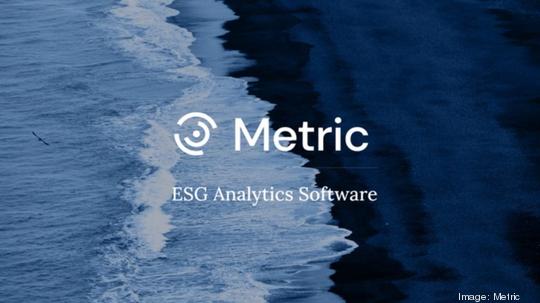
The demand for data on social-impact investing is increasing among investors who want their money to go towards solving environmental, social and governance, or ESG, issues, from advocating for wider voting rights to reducing carbon emissions.
In 2020, financial data firm Morningstar reported that ESG funds had received $51.1 billion in net new money from investors looking to use that set of criteria to determine a company’s environmental and social impact.
That’s where Metric comes in.
Founded in 2018, Metric provides analytic software for private market investors to measure their portfolio’s ESG impact and performance and help company executives align profitability, equity and sustainability.
“Helping companies understand what the social [and] environmental outcomes of their business are today and how improving those actually drive financial improvement for their companies and investments as well,” said Megan Murday, founder and CEO of Metric.
Metric provides ESG data through a two-sided platform — one for investors and one for companies. Investors can add funds, invite portfolio companies, select which metrics they want to measure across an entire portfolio and keep track of measurement progress. The platform also enables investors to observe ESG performance at both an individual company level and a broader fund level.
Company access to the platform requires an invitation from an investor. Once the company logs in, it provides and confirms additional information about the business, such as operating locations and number of employees. The company can then view the metrics selected by investors and add any other criteria it would like to measure.
And Metric uses a TurboTax approach for data collection to file, upload or direct data entry. With this approach, the company ingests the data and then provides an analysis of a business’s performance compared with competitors, along with the financial impact of that performance.
“I'm not naive enough to think that anyone will pay to create positive impact unless there’s a business case to do it. So we've spent a lot of time sifting through what the evidence is for the business case," Murday said. "For example, carbon emissions. Yes, we need companies to reduce their emissions, but it's a lot more compelling to say, ‘you can reduce your emissions because your liability is X if we saw a carbon tax tomorrow,’ versus, you should reduce your emissions just because it's the right thing to do, which is an argument, people have been trying to make for a long time with not much traction."
Metric is a part of the Harvard i-Lab’s Spring 2021 Venture Program as well as the Harvard Business School Rock Accelerator. As a soon-to-be graduate of Harvard Business School, Murday spent her time in these programs positioning Metric for growth after graduation. This included building out the beta product and planning for a fundraiser this summer.
As for next steps, Murday said the company plans to move its headquarters in Chicago, where it will build out its next products and continue to conduct pilot testing with private market investors.
Metric sells annual subscriptions and licenses to its service, positioning the data as an opportunity for businesses to make better operational and investment decisions based on ESG performance and impact on the bottom line. Through data analysis, Murday says Metric can highlight problem areas or opportunities to create more value for a business. What's more, ESG investing is early enough that companies can claim a first-mover advantage in distinguishing their brands from others.
“We've positioned and framed this data as business-performance data," Murday said. "These are metrics that managers and investors should be looking at as indicators for how efficient or profitable a business is. For example, if a company is using twice as much water as a competitor, yes, it's bad for the environment, but it's also requiring twice as much cost input as well, to produce a given unit of a product, and it's probably hiding an operational inefficiency as well."
Murday continued: "Climate change will be one of the most important issues we grapple with as a generation, and so many of the solutions that are required to mitigate climate change either haven't been created or haven't been scaled yet. So I think there's a massive opportunity, and both for financial returns, but also to drive meaningful impact as well. The space is very open and we need more talented people in it.”








